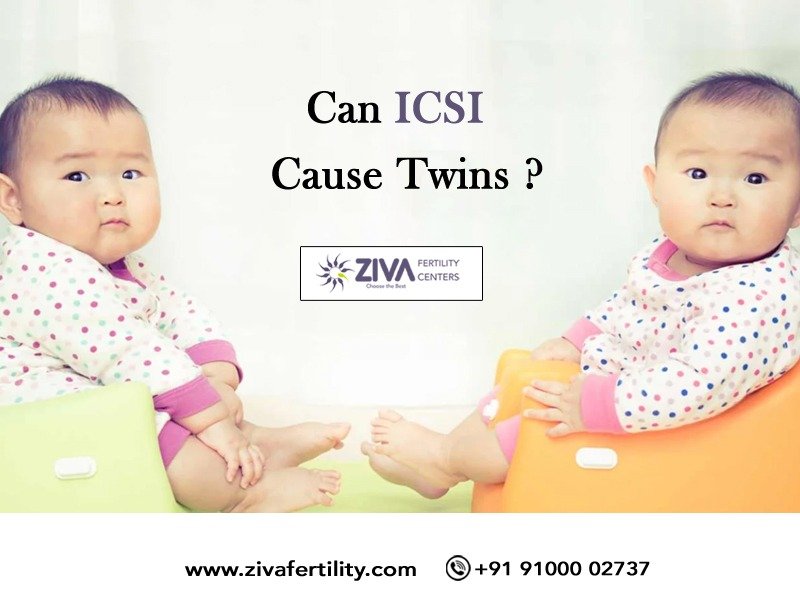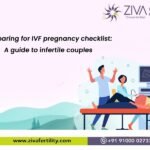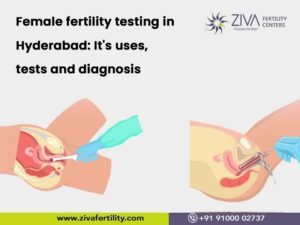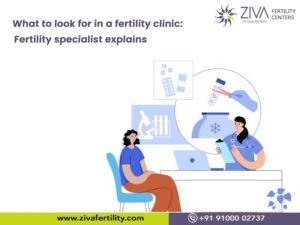Intracytoplasmic Sperm Injection (ICSI) is a form of Assisted Reproductive Technology mainly used in cases of male infertility. In the process of fertilization, the head of the sperm must first attach to the outside of the egg. After attaching to the egg, the sperm pushes through the outer layer to the inside of the egg, known as the cytoplasm, which is the site of fertilization. Due to various reasons, the sperm cannot penetrate the cytoplasm. The main two reasons are that the egg’s outer layer is thicker for the sperm to penetrate, or the sperm may be unable to swim. But such couples have a blessing in the form of an ICSI. In the ICSI process, using a micropipette which is a tiny needle, a single sperm is injected into the centre of the egg. After successful fertilization, an embryo is formed. The embryo is kept in a laboratory for 1 to 5 days, after which it is transferred to the woman’s uterus (womb). After fertilization, the chance of giving birth to a single baby, twins, or triplets is the same if they have IVF with or without ICSI.
When should a couple opt for an ICSI?
In the wide world of ART’s every treatment serves a different purpose. Hence, it is vital to know which ART works for which fertility issues:-
- The quantity of sperm produced by the male partner is too low for artificial insemination via IUI or IVF.
- Issues in sperm movement.
- The sperm is unable to attach itself to the egg.
- Obstructions in the male reproductive tract for the sperm to get out.
- Earlier frozen eggs are being used.
ICSI and Twins
With ICSI, there has been an increase in the occurrence of monozygotic twinning, ICSI. Monozygotic twinning (MZT) is when an embryo splits after fertilization, resulting in identical twins. The chances of occurrence of MZT is 0.42% in natural pregnancies. When an ART is used, the chances of MZT have increased and currently vary between 1.2% and 8.9%. A 2002 report (Tarlatzis et al., Fertil Steril 77:196-8, 2002) found that the incidence of MZT is higher when blastocysts are formed in an ICSI cycle compared to blastocysts resulting from IVF.
Within the first 2 weeks after fertilization, embryos can spilt, at any time, resulting in several forms of monozygotic twins.
- In about one-third of the MZT’s the splitting occurs within 72 hours of fertilization, and the placenta will be dichorionic-diamniotic (i.e. two placentae and two amniotic sacs).
- In the remaining 2/3 of MZT’s, the splitting occurs 4-8 days after fertilization, and the placenta will be monochorionic-diamniotic (i.e. one placenta and two amniotic sacs).
- In only 5% of MZT’s, the splitting occurs 8-13 days after fertilization, resulting in monochorionic-monoamniotic twins (one placenta and one amniotic sac).
- In rare cases, if the splitting occurs after 13 days, it results in conjoined twins.
In research conducted by the Centers for Disease Control (CDC) in the USA, it was found that infants conceived with ART:
- 43% were twins
- 3% were triplets or higher-order infants
Infertility treatments account for up to 50% of twins born and 75% of higher-order multiple births.
But why are twins/multiple births a risk?
Since multiple rounds of ART are expensive, and women’s pregnancy age is higher, transferring multiple embryos became desirable. Couples would want to achieve pregnancy right away on the first try. This sounds good on paper, but one should know the risks and costs involved.
Cost implications of multiple births
Initially, it may sound cheaper to transfer multiple embryos, but couples often spend far more money in the long run to support twins, triplets, quadruplets, or more. The expense is higher in the treatment phase and later during the curing period.
Medical risks with multiple births
A woman’s womb is designed to carry one fetus to full term. When one or more fetus gets added, the risks for preterm birth or other pregnancy complications increase, such as:
- In general, 60% of twins and 90% of triplets are delivered preterm
- In twin pregnancies, life-threatening maternal complications are higher.
- The mortality rate is four times higher with twins
- Premature birth leads to a low birth weight
- Pre-eclampsia or twin-to-twin transfusion syndrome (TTTS) is more prevalent in multiple births.
- Preterm births can lead to infant mortality in serious cases or long-term mental and physical disabilities.
- Apart from higher care costs, a preterm infant requires continued care.
Methods to prevent twins/multiple pregnancies in ICSI
Though the risks may sound overwhelming, there are many ways to overcome these risks.
Limited embryo transfer: The best and most efficient method is to limit the number of embryos transferred. Single embryo transfers (or SET) are the first choice at most fertility clinics. SET is recommended worldwide, including the CDC, the American Society for Reproductive Medicine, and the Society for Assisted Reproductive Technology. One need not worry about success rates of single embryo transfers if:
- The patients are 38 years or younger
- The quality of eggs and embryos is good.
Multiple embryo transfers are recommended for those above 38 years of age who have had multiple IVF cycles with no success.
Blastocyst culture and transfer: Apart from SET, fertility experts also try blastocyst culture and transfer, with which one can get success while reducing the odds of multiple births. In the blastocyst culture and transfer method, the experts monitor the growth of embryos for five days instead of three. Then the healthiest embryos are transferred.
We at ZIVA Fertility center have vast experience dealing with all kinds of ART’s. We understand the pros and cons of each method. We value our patient’s time and money. Hence, we give a clear picture and also solutions. Though multiple births are a risk with ART’s we have successfully managed these risks and brought smiles to the faces of thousands of couples. Please visit our website https://zivafertility.com/ or call us at +91-9100002737, +91-9392834024, and Info@zivafertility.com.
















